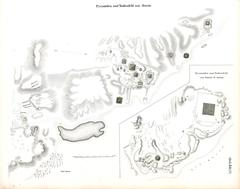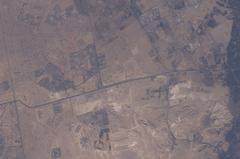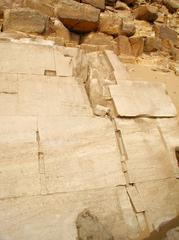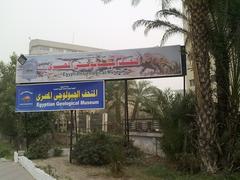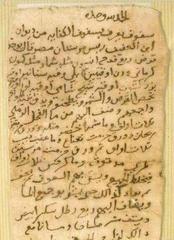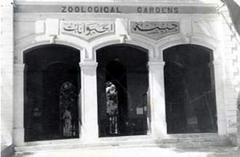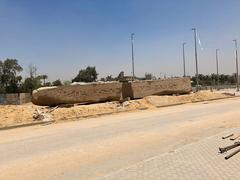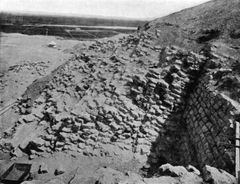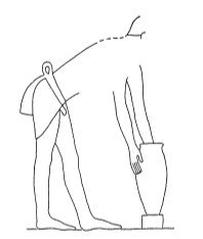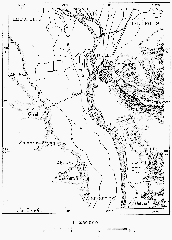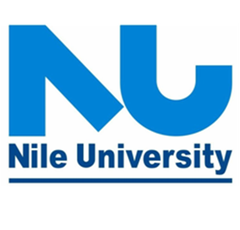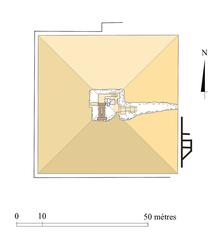Egyptian E-Learning University Visiting Hours, Tickets, and Guide for Giza Governorate, Egypt
Date: 14/06/2025
Introduction
Giza Governorate stands at the crossroads of Egypt’s enduring ancient wonders and modern advancements. While the world-famous Pyramids of Giza and the Great Sphinx are timeless symbols of human achievement, Giza is also home to pioneering institutions such as the Egyptian E-Learning University (EELU). This guide offers a detailed overview of both the ancient and modern facets of Giza, providing prospective visitors and students with essential information about visiting the pyramids, exploring contemporary educational opportunities, and navigating the urban landscape of this remarkable Egyptian region.
For further information, refer to Wikipedia’s Egyptian E-Learning University, the Official Egypt Tourism - Pyramids of Giza, and Arab Universities Listing.
Table of Contents
- Egyptian E-Learning University (EELU)
- Visiting the Pyramids of Giza
- The Great Pyramid of Giza
- Giza Pyramids: Hours, Tickets, and Travel Insights
Egyptian E-Learning University (EELU)
Founding and Development
The Egyptian E-Learning University (EELU), known officially as the National Egyptian E-Learning University (الجامعة المصرية للتعلم الإلكترونى الأهلية), was established in 2008 by Presidential Decree No. 233. It is Egypt’s first national university dedicated to e-learning and distance education, created as part of the country’s broader effort to modernize higher education and expand quality educational access through digital innovation (Wikipedia). Key national initiatives, including the Egyptian Education Initiative (EEI) and the National E-Learning Project, laid the foundation for EELU’s establishment (ijelr.journals.ekb.eg).
Mission and Vision
EELU’s mission is to deliver high-quality education and training via advanced e-learning methodologies, empowering graduates with academic expertise and digital skills. The university’s vision is to lead in fostering innovation, lifelong learning, and social development in Egypt and the Arab region (Arab Universities). Flexibility, digital literacy, and sustainable educational advancement are at the core of its philosophy (egyptianeducation.com).
Academic Programs
EELU provides a variety of undergraduate and postgraduate programs designed to meet the needs of Egypt’s evolving economy:
- Faculty of Computers and Information Technology: Focuses on advanced IT education and research, equipping students for careers in the technology sector (egyptianeducation.com).
- Faculty of Commercial Studies and Business Administration: Prepares students for business management roles in both local and international contexts.
- Faculty of Educational Studies: Offers specialized diplomas and master’s degrees in e-learning, accredited by the Ministry of Higher Education and the Supreme Council of Universities.
EELU’s online learning model allows students from across Egypt and the Arab world to access higher education without the limitations of location or time.
Admission Process
Prospective students apply online via EELU’s website. Admission requirements vary by program but generally include a high school certificate, often with a focus on science or mathematics. Comprehensive support services assist applicants throughout the process, and detailed tuition information is available on the university website.
Role in Egypt’s E-Learning Ecosystem
EELU plays a crucial role in expanding educational access, particularly for students in remote or underserved areas and working professionals seeking flexible study options (ijelr.journals.ekb.eg). The curriculum emphasizes digital literacy and lifelong learning, and the university actively participates in national projects like the Egyptian Knowledge Bank (ijelr.journals.ekb.eg).
Quality and Recognition
EELU’s programs are regularly reviewed by the National Authority for Quality Assurance and Accreditation of Education (NAQAAE), ensuring both national and international recognition. In 2023, EELU was shortlisted for the Times Higher Education Awards MENA’s “Student Recruitment Campaign of the Year” (Wikipedia).
Leadership
As of 2024, EELU is led by Dr. Ahmed Abu Al-Magd (University Director) and Khaled Hashem (Director of Student Affairs), who promote an environment of innovation and student-focused governance (Wikipedia).
Location and Facilities
While EELU operates primarily online, its main office is located at 33 El Messaha Street, Dokki A, Dokki, Giza Governorate (Arab Universities). Administrative, student service, and occasional in-person functions are managed from this location.
Societal Impact
EELU bridges educational gaps between urban and rural communities, supports Egypt’s workforce development, and pioneers innovative digital teaching methods, employing platforms like Moodle and interactive virtual classrooms (academia.edu).
Challenges and Prospects
Ongoing challenges include broader accreditation for online degrees, digital infrastructure disparities, and faculty development. However, increasing internet penetration and sustained government support point to continued growth for e-learning in Egypt (ijel.journals.ekb.eg).
FAQs
- How can I apply?
Online through the EELU website; program-specific requirements apply. - Are degrees recognized?
Yes, accredited by NAQAAE. - What are the fees?
Fees vary by program; see the university website. - Does EELU support online learners?
Yes, with academic advising and technical help. - Can international students enroll?
Yes, EELU welcomes students from the Arab region and beyond.
For more information, see Wikipedia, Arab Universities, and Egyptian Education.
Visiting the Pyramids of Giza
History and Significance
The Pyramids of Giza, constructed over 4,500 years ago during Egypt’s Fourth Dynasty, were built as tombs for Pharaohs Khufu, Khafre, and Menkaure. The Great Pyramid of Khufu, the largest, was the world’s tallest man-made structure for centuries, reflecting the ancient Egyptians’ architectural prowess and spiritual beliefs. The complex, including the Great Sphinx, is a UNESCO World Heritage site and a major draw for millions of visitors each year.
Visitor Information
- Location: Giza Governorate, about 20 km southwest of central Cairo.
- Opening Hours: Daily, 8:00 AM – 5:00 PM (summer hours may extend to sunset); last entry is usually one hour before closing.
- Tickets and Admission:
- General admission: ~200 EGP for adults.
- Entry to the Great Pyramid: additional ~400 EGP.
- Discounts for students, children, and nationals.
- Purchase tickets on-site or online (Official Egypt Tourism).
- Guided Tours: Licensed guides are available at the entrance and can be booked in advance. Guided tours often include visits to the Sphinx and museums.
Accessibility and Getting There
- By Metro: Take Cairo Metro Line 2 to Giza Station, then a short taxi ride.
- By Taxi/Ride-Share: Direct from Cairo city center.
- Parking: Available near the site.
- Accessibility: The plateau is partially accessible; inside the pyramids may be challenging due to narrow, steep passages.
Nearby Attractions
- Great Sphinx: Adjacent to the pyramids.
- Solar Boat Museum: Near the Great Pyramid, featuring Khufu’s reconstructed boat.
- Grand Egyptian Museum (GEM): Located nearby, set to be the world’s largest archaeological museum (Grand Egyptian Museum).
- Camel/Horseback Rides: Popular for unique views and photos.
Photography and Best Times to Visit
- Best Times: Early morning or late afternoon for ideal lighting and fewer crowds.
- Sunrise/Sunset: Offer dramatic views.
- Restrictions: Drones require permits; tripods may be restricted.
Visitor Amenities, Events, and Tips
- Amenities: Restrooms, shaded areas, food vendors, and souvenir shops near the entrance.
- Special Events: Evening Sound and Light Shows illuminate the pyramids and narrate their history.
- Tips:
- Wear comfortable shoes and sun protection.
- Bring water and a hat.
- Dress modestly.
- Use official guides only.
FAQs
- Can I enter the Great Pyramid?
Yes, with a separate ticket—daily visitor numbers are limited. - What can I bring?
Large bags and tripods may be restricted. - Is it child-friendly?
Yes, but some areas are uneven and require supervision. - Are night visits possible?
Only during special events.
For further details, visit Official Egypt Tourism - Pyramids of Giza and UNESCO World Heritage Centre.
The Great Pyramid of Giza: Visiting Guide
Overview and History
The Great Pyramid of Giza, built for Pharaoh Khufu around 2580–2560 BCE, is the largest and oldest of the Giza pyramids and the only surviving Ancient Wonder of the World.
Visiting Hours and Ticketing
- Hours: Daily, 8:00 AM – 5:00 PM.
- Tickets:
- General admission: ~200 EGP.
- Interior access: additional ~400 EGP.
- Guided tours are available and recommended.
- Purchase: Onsite or via official platforms.
Getting There
- Taxi/ride-share: Most convenient from central Cairo.
- Tour buses: Offered by many agencies.
- Public transport: Possible, but less direct.
Nearby Highlights
- Great Sphinx, Khafre and Menkaure Pyramids, Solar Boat Museum.
Visitor Tips and Accessibility
- Wear comfortable clothing and bring sun protection.
- Photography allowed; drones need special permits.
- The site is partially accessible; interior passages may not be suitable for all visitors.
Special Events
- Evening Sound and Light Shows are held periodically.
FAQs
- Can I enter the pyramid?
Yes, with a dedicated ticket. - Are guided tours available?
Yes, at extra cost. - Best time to visit?
October–April. - Are there restrooms and cafes?
Basic facilities are available at the entrance.
For more, see Visit Egypt: Great Pyramid Guide.
Giza Pyramids: Hours, Tickets, and Cultural Insights
Visiting Hours and Ticket Prices
- Open: Daily, 8:00 AM–5:00 PM (last entry ~4:00 PM).
- General admission: ~200 EGP; Great Pyramid entry: ~400 EGP.
- Tickets: Onsite or online (Official Ticketing).
Accessibility and Visitor Facilities
- Partial wheelchair access on the plateau; pyramid interiors are not fully accessible.
- Restrooms, shaded areas, cafes, and souvenir shops available.
Guided Tours and Experiences
- Book through official operators or onsite.
- Camel and horse rides for unique perspectives.
Top Photographic Spots
- Near the Solar Boat Museum for panoramic pyramid views.
- Around the Sphinx for close-up shots.
- Western edge of the plateau for sunsets.
Cultural Insights: EELU in Urban Giza
Giza’s contemporary side includes EELU, located at 33 Al-Masaha Street, Dokki. The university is in a vibrant district with cafes, bookstores, and cultural venues, reflecting the city’s blend of ancient heritage and modern innovation.
Notable Nearby Attractions
- Grand Egyptian Museum (GEM): Immersive exhibitions and archaeological treasures.
- Orman Garden: Botanical oasis near EELU.
- Pharaonic Village: Interactive living museum.
- Dream Park: Egypt’s largest theme park.
- Culinary Experiences: Sample local Egyptian cuisine at restaurants and street vendors.
Transportation and Safety
- Well-connected via metro, buses, and taxis.
- Safer to travel during non-peak hours.
- Keep valuables secure and be aware of surroundings.
FAQs
- What are the visiting hours?
8:00 AM–5:00 PM, last entry ~4:00 PM. - How to buy tickets?
Onsite or online. - Is the site accessible?
Plateau: partially; interiors: not fully. - Are guided tours available?
Yes. - Best time to visit?
October–April, early morning or late afternoon.
Plan Your Visit
Maximize your Giza experience by downloading the Audiala app for real-time updates, ticketing, and guided tours. Follow official channels for timely information and explore related resources for travel tips and cultural insights.
Summary
Giza Governorate masterfully merges the ancient and the modern. The Pyramids of Giza and the Great Pyramid of Khufu offer accessible, well-organized visits, while EELU’s presence highlights Egypt’s leadership in digital education. Whether you seek the marvels of antiquity or the promise of innovative learning, Giza provides an unparalleled setting for discovery and growth.
For planning, consult the Egyptian Ministry of Tourism, Egyptian Education Portal, and Arab Universities.
References and Further Reading
- Egyptian E-Learning University: History, Programs, and Impact
- Visiting the Pyramids of Giza: A Comprehensive Guide
- Visiting the Great Pyramid of Giza: Hours, Tickets, and Exploring Egypt’s Iconic Historical Site
- Giza Pyramids Visiting Hours, Tickets, and Cultural Insights
- Egyptian Education Portal
